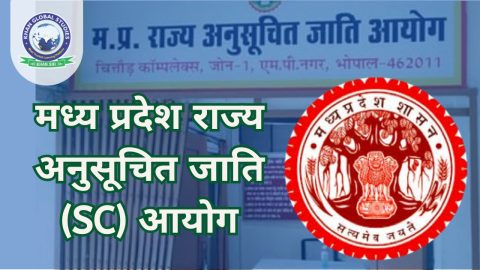The Madhya Pradesh State Scheduled Castes Commission is a constitutional body of the Government of Madhya Pradesh, constituted to protect the welfare and rights of the Scheduled Caste people. The Commission was established under Article 214 (3) of the Constitution.
It is important to understand the Madhya Pradesh State Scheduled Caste Commission to appreciate the efforts made for the upliftment of the Scheduled Caste community. This article discusses in detail the Commission’s background, functions, achievements, and the financial aspects that enable its operations.
Historical Background
The Madhya Pradesh State Scheduled Caste Commission was established to protect the rights of the Scheduled Castes (SC) in the state. Over the years, it has become a key institution in advocating SC welfare and ensuring the implementation of policies aimed at their development.
Objectives and Goals
The primary objective of the Commission is to ensure the socio-economic development of SC communities by advising the government on policy matters, monitoring the implementation of various schemes, and resolving complaints related to discrimination and atrocities against SC persons.
Functions
The main functions of the Madhya Pradesh State Scheduled Castes Commission are as follows:
- To investigate discrimination and atrocities against the Scheduled Caste people.
- To review the implementation of government schemes and policies for the Scheduled Caste people.
- To advise the government to protect the rights and interests of the Scheduled Caste people.
- To promote programmes and schemes for the upliftment of the Scheduled Caste people.
- To provide legal aid to the victims in cases of oppression of the Scheduled Caste people.
Achievements
The Madhya Pradesh State Scheduled Castes Commission has achieved several significant achievements in protecting the welfare and rights of the Scheduled Caste people. These include:
- Increase in the number of cases of discrimination and atrocities against the Scheduled Caste people.
- Improvement in implementing government schemes and policies for the Scheduled Caste people.
- Creation of strong laws to protect the rights and interests of the Scheduled Caste people.
- Launch of various programs and schemes to uplift the Scheduled Caste people.
- Increase in providing legal aid to the victims in cases of oppression of the Scheduled Caste people.
Commission Structure
- Organizational Hierarchy: The Commission is structured with a Chairperson, who is supported by members and a Secretariat. Each member has specific responsibilities, which ensure that the Commission functions efficiently.
- Key Members and their Roles: The key members include the chairperson, vice-chairperson, and other appointed members, each of whom brings expertise. Their roles range from policy advice to grievance redressal.
Key Initiatives and Programmes
- Educational Programmes: Educational programmes are designed to improve literacy rates and educational attainment among Scheduled Caste individuals. Scholarships and special coaching classes are part of these initiatives.
- Employment Initiatives: Employment programmes focus on increasing job opportunities for Scheduled Caste individuals through skill development and job placement services.
- Health and Welfare Schemes: Health schemes ensure access to medical facilities and promote overall well-being among Scheduled Caste communities.
Challenges Faced by the Commission
- Operational Constraints: The Commission faces several operational challenges, including bureaucratic delays and resistance to change in some government departments.
- Resource Constraints: Limited financial and human resources can hinder the effective implementation of programmes and schemes.
Future Goals and Plans
- Increasing Program Reach: The Commission aims to expand its reach by launching more inclusive programs and ensuring that benefits reach all Scheduled Caste individuals in the state.
- Strengthening Grievance Mechanism” Plans are underway to improve the grievance redressal mechanism, making it more efficient and accessible.
Budget Allocation
The Madhya Pradesh State Scheduled Caste Commission is allocated an adequate budget to carry out its functions to protect the welfare and rights of the Scheduled Caste people. In the financial year 2022-23, the Commission was allocated a budget of ₹ 1,49,95,000/-.
Conclusion
The Madhya Pradesh State Scheduled Caste Commission plays a vital role in the socio-economic development of the Scheduled Caste community. Through its various functions and initiatives, it strives to ensure that the benefits of government schemes reach the intended beneficiaries. While challenges remain, the Commission’s ongoing efforts and plans promise a brighter future for the Scheduled Caste community in Madhya Pradesh.
FAQs
Question: What is the main objective of the Madhya Pradesh State Scheduled Caste Commission?
Answer: The main objective is to protect the rights and interests of Scheduled Castes and ensure their socio-economic development through various policies and programs.
Question: How does the Commission resolve grievances?
Answer: The Commission provides a platform for SC persons to report discrimination and injustice, working towards ensuring justice through a structured grievance redressal mechanism.
Question: What are the major achievements of the Commission?
Answer: The Commission has successfully influenced policymaking, resolved numerous grievances, conducted extensive awareness campaigns and initiated socio-economic programmes.
Question: How is the Commission funded?
Answer: The Commission is funded primarily by the State Government, with additional support from grants and contributions from the Central Government.
Question: What are the plans of the Commission?
Answer: Plans include expanding the reach of programmes, improving grievance redressal mechanisms and leveraging technology for better service delivery.





